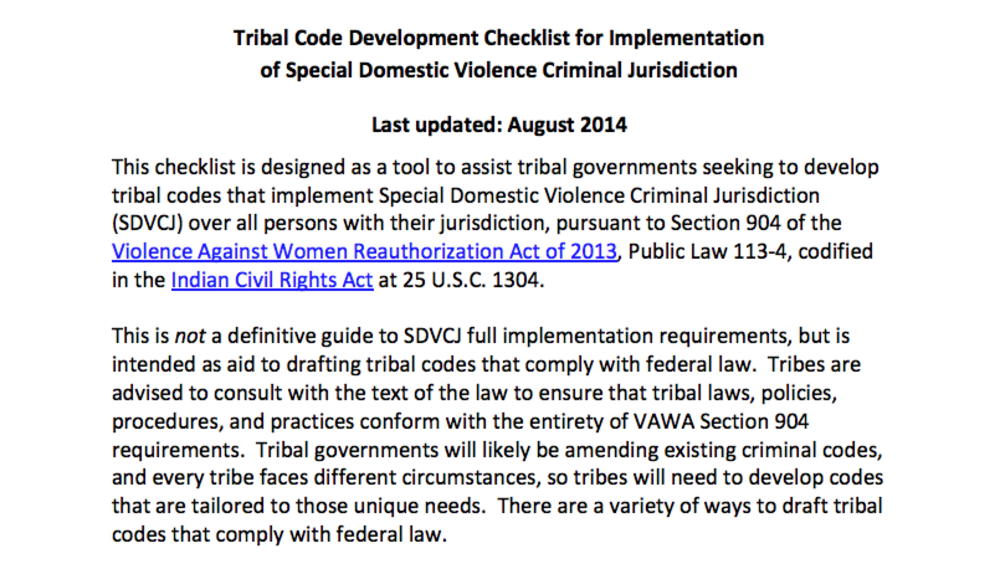Indigenous Governance Database
Tulalip Tribes
Image

Tribal Code Development Checklist for Implementation of Special Domestic Violence Criminal Jurisdiction
This checklist (click to download) is designed as a tool to assist tribal governments seeking to develop tribal codes that implement special domestic violence criminal jurisdiction (SDVCJ) under section 904 of VAWA 2013. Tribal governments will likely be amending existing criminal codes, and every…
Pagination
- First page
- …
- 1
- 2
- …
